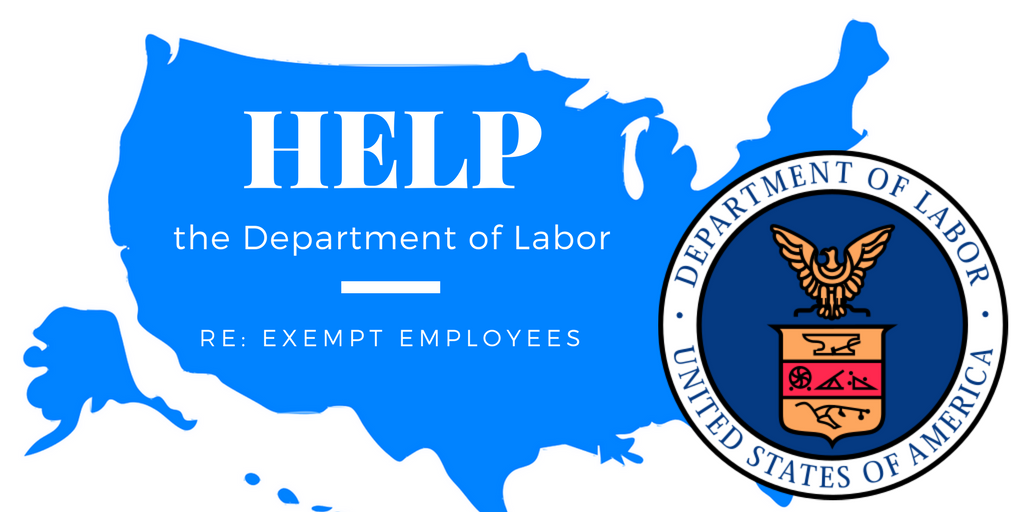One of 2016’s hot topics in employment law was how high the salary threshold for FLSA exemption would increase? In other words, how much would employer have to pay exempt employees to keep them exempt? It’s mid-2017, and the question hasn’t gone away!
The U.S. Department of Labor initially answered that question with a $913/week salary requirement. That threshold would then change every three years based on average salary levels.
However, a federal court in Texas stopped the new salary rule before it took effect. That case remains on appeal, but the Department of Labor–now under a Republican administration–has indicated it will not fight to uphold the $913/week standard. Instead, the DOL has announced that it will review the relevant rules and establish a new test.
On July 26, 2017, the DOL issued a Request for Information seeking information related to the FLSA exemption rules. In particular, the DOL refers to the executive, administrative, professional, outside sales, and computer employee exemptions.
What Tests for Exempt Employees?
Based on the Request for Information, it looks like the DOL is open to reviewing all aspects of the exemptions. This includes not only the salary level for exempt employees, but also the duties tests.
Here are some of the specific questions the DOL is asking:
- Would updating the 2004 salary level ($455/week) for inflation be an appropriate basis for setting the standard salary level and, if so, what measure of inflation should be used?
- Should the regulations contain multiple standard salary levels? If so, how should these levels be set: by size of employer, census region, census division, state, metropolitan statistical area, or some other method?
- Does the standard salary level set in the 2016 Final Rule ($913/week) work effectively with the standard duties test or, instead, does it in effect eclipse the role of the duties test in determining exemption status?
- To what extent did employers, in anticipation of the 2016 Final Rule’s effective date on December 1, 2016, increase salaries of exempt employees in order to retain their exempt status, decrease newly non-exempt employees’ hours or change their implicit hourly rates so that the total amount paid would remain the same, convert worker pay from salaries to hourly wages, or make changes to workplace policies either to limit employee flexibility to work after normal work hours or track work performed during those times?
- Did employers make any additional changes, such as reverting salaries of exempt employees to their prior (pre-rule) levels, after the preliminary injunction was issued?
- Would a test for exemption that relies solely on the duties performed by the employee without regard to the amount of salary paid by the employer be preferable to the current standard test?
- Does the salary level set in the 2016 Final Rule exclude from exemption particular occupations that have traditionally been covered by the exemption and, if so, what are those occupations?
- Should there be multiple total annual compensation levels for the highly compensated employee exemption?
- Should the standard salary level and the highly compensated employee total annual compensation level be automatically updated on a periodic basis to ensure that they remain effective, in combination with their respective duties tests, at identifying exempt employees?
Help the DOL Get it Right
The DOL will accept public comments on the Request for Information until September 25, 2017. Anyone can submit information related to these issues affecting exempt employees. You can expect prominent employee, labor, and business groups to do so.
I am currently considering submitting comments based on my experience representing employers in employee classification and overtime for more than a decade. If you have any information that you would like to share in connection with my preparation of those comments, please email me.
DISCLAIMER: No attorney-client relationship will be created by you emailing me information! If you need legal representation, whether in connection with employee exemption issues otherwise, please speak with me (or another attorney of your choice) before sending confidential information.
